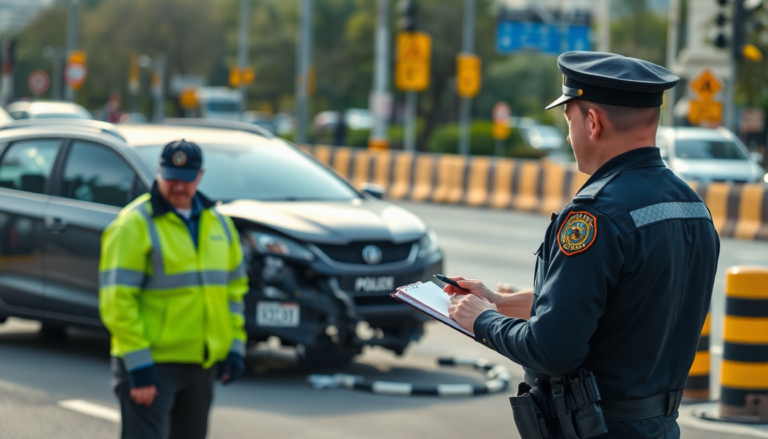Argomenti trattati
The Legal Landscape After an Accident
In the unfortunate event of a motor vehicle accident, understanding your legal obligations is crucial. According to the law, if a law enforcement officer is present at the scene, they are mandated to file an accident report. A significant aspect of this process is the requirement for vehicle operators to present proof of insurance. This proof is essential in ensuring that all parties involved are protected and that the situation is handled according to legal standards.
What is Proof of Insurance?
Proof of insurance is a document that verifies that a vehicle is insured as stipulated by law. This documentation can take various forms, including a physical insurance card or an electronic version displayed on a mobile device. It’s essential for all drivers to carry this proof whenever they are operating their vehicle. In many jurisdictions, failing to provide this proof when requested by law enforcement can lead to legal consequences.
Consequences of Non-Compliance
If you fail to present proof of insurance to a law enforcement officer within thirty days of an accident, you may be charged with a Class 2 misdemeanor. This charge can have serious implications, including fines and possibly points on your driving record, which may increase your insurance premiums. It’s vital to understand that these regulations are in place not just for the sake of the law, but to protect everyone on the road.
Steps to Take After an Accident
After any car accident, your first steps can significantly influence the outcome of any legal or insurance claims. Here are some key actions to consider:
- Ensure Safety: Before anything else, check for injuries and ensure all parties are safe. Call emergency services if necessary.
- Document the Scene: Take photos of the accident scene, vehicle damages, and any relevant road signs or signals.
- Exchange Information: Collect contact and insurance information from the other parties involved.
- File a Police Report: If a police officer is present, provide them with accurate information regarding the incident.
- Contact Your Insurance: Notify your insurance provider about the accident as soon as possible.
Communicating with Law Enforcement
When speaking with law enforcement, remain calm and provide accurate details about the incident. Avoid admitting fault at the scene. Remember, the officer’s report will be critical for insurance claims and potential legal proceedings. If they request proof of insurance, be prepared to present it. If you do not have it with you, make sure to provide it to them within the stipulated time frame to avoid penalties.
Understanding Your Insurance Policy
It’s also essential to have a clear understanding of your insurance policy. Familiarize yourself with what is covered in the event of an accident, including liability, collision, and comprehensive coverage. Knowing these details can significantly aid you when dealing with the aftermath of an accident.
Final Thoughts on Staying Prepared
Being prepared for an accident involves more than just having insurance; it requires knowledge of your legal responsibilities and a clear action plan. Regularly review your insurance policy, keep your proof of insurance accessible, and understand the procedures to follow in the event of an accident. By doing so, you can navigate the complexities of vehicle accidents with confidence and protect your rights as a driver.

